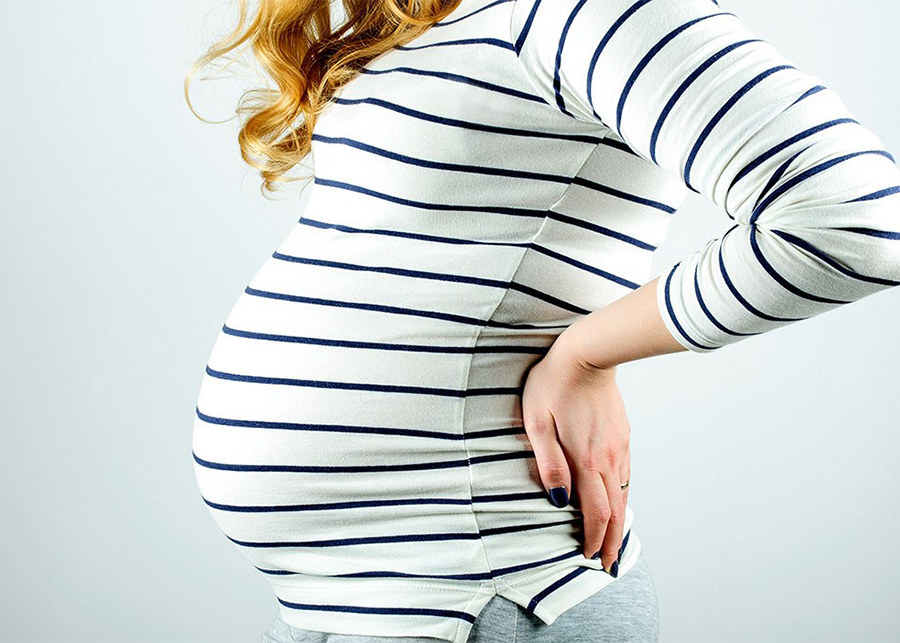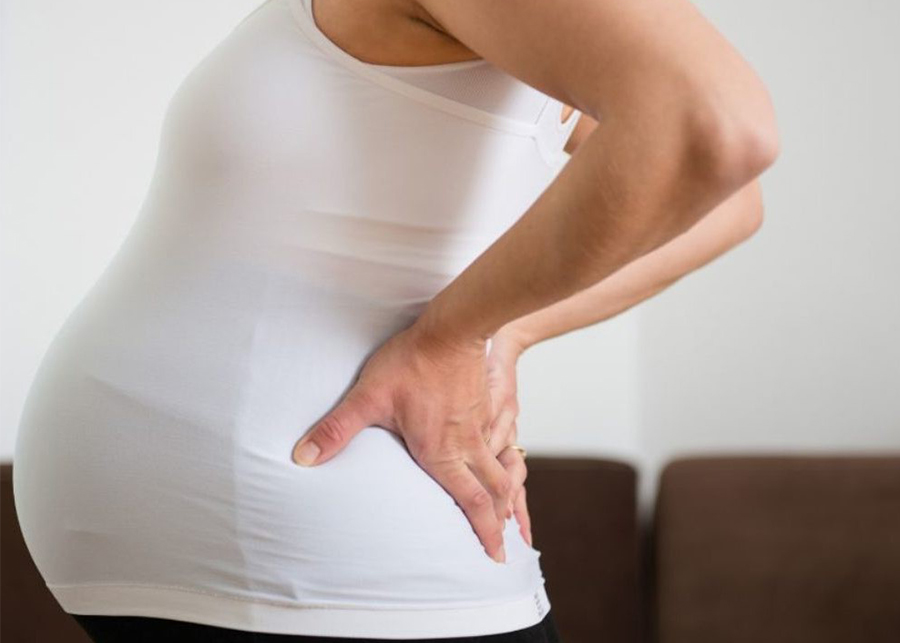If you are experiencing hip pain during pregnancy, one of the most common reasons is weight gain. The added pressure on your joints from the extra pounds can serve as an irritant and cause them to ache. This is especially true if you’re gaining more than usual or if you had problems with joint pain before becoming pregnant.
While you may not have a clue why you’re having hip pain during pregnancy, this symptom can be the result of the extra weight your body is putting on your weight-bearing joints. Pregnancy hormone relaxin can also play a role in the pain. The corpus luteum gland releases this hormone after ovulation and its levels drop when you don’t become pregnant. This hormone is the culprit when you’re experiencing hip pain during pregnancy.

Weight gain
While some preventative measures can help to alleviate the discomfort of hip pain during pregnancy, it is important to keep in mind that certain precautions do not always work. Among them, sleeping on your side may cause hip pain during pregnancy, so try to sleep on the other side instead. This will keep the pressure off the painful hip and improve your posture. You may also find that bending your legs during sleep helps to reduce the pressure on the hip. This will align your legs and spine, as well as make you more comfortable.
Bad posture
There are many reasons why you could experience bad posture during pregnancy. It is the weight of the baby, the hormone relaxin, and the changes in posture that cause your hips to become sore. When these conditions combine, your hips, pelvis, and lower back may be affected. A good way to alleviate this pain is by sitting in the correct posture. While this may seem like an oversimplification, it can help relieve the pain and discomfort you experience.
Hormone relaxin
There are many factors that can contribute to hip pain during pregnancy, including the hormone relaxin. While relaxin increases the softness of your ligaments, it can also cause pain in your hips. Your pelvis and uterus are connected by ligaments known as sacroiliac joints. As your womb enlarges, these ligaments become loose, causing pain in your hips and lower back. Because these ligaments are weakened by your pregnancy, walking may cause discomfort as well.
Exercise
During pregnancy, your body goes through a variety of physical changes. Your soft tissues and joints become more sensitive to stress and strain. While some muscles relax and tighten, others tighten. As a result, exercise for hip pain during pregnancy can help you regain your original posture. Try a yoga or Pilates class to alleviate your pain. You can also take up other physical activities, including swimming and gardening. There are many benefits to exercising for hip pain during pregnancy, so make sure to find the right exercises for you and your body.
Prenatal massage
The body changes dramatically during pregnancy, and this is no exception to the case with hip
pain during pregnancy. The pelvic floor and lower back muscles often suffer from the strain of the growing uterus, and this pressure extends to the surrounding muscles and nerves, causing hip and leg pain. Musculoskeletal changes also contribute to this discomfort, with increased pressure placed on the sciatic nerve during pregnancy. Massage therapy can alleviate these symptoms by addressing the inflamed nerves and relieving tension in the muscles surrounding the sciatic nerve.

Avoiding activities that aggravate the pain
The most obvious thing to do if you’re experiencing hip pain while pregnant is to avoid it. Hip pain is a common occurrence during pregnancy and is often caused by faulty postural alignment or weight mismanagement. To avoid hip pain during pregnancy, consider using a support belt and avoiding activities that aggravate it. A prenatal massage may also be helpful. To reduce hip pain, limit physical activity and weight gain.
Consult a physician if pain becomes unbearable
If you are experiencing persistent hip or back pain, it is time to consult a physician. A physician will prescribe mild medications or suggest a treatment plan for your condition. Hip pain is usually normal during pregnancy, but it is worth consulting a physician if you’re experiencing persistent pain and are concerned that it may indicate something more serious. A doctor can also recommend exercises and physiotherapy for the hip area.
Hip Pain During Pregnancy Result
During pregnancy, it is normal to experience repeated hip pain or even back pain. However, it’s crucial that you report persistent hip or back pain throughout your pregnancy to your doctor since this can be a symptom of several pregnancy-related conditions. Hip pain can occur for the following reasons: 1) You are experiencing hormonal changes which may be causing your ligaments to loosen up; 2) Your pelvic girdle is loosening up and therefore you experience both hip and lower back pain; 3) You are expecting twins, therefore there is increased pelvic pressure during pregnancy; 4) You are carrying a larger than normal baby. In addition, if you’re experiencing unsteadiness while walking due to hip or back pain, it is imperative that you see your physician. Hip and back pain can lead to serious complications that affect both the mother and the unborn baby. Be sure to contact your physician immediately should you experience sudden onset hip or back pain while carrying a child in utero.


